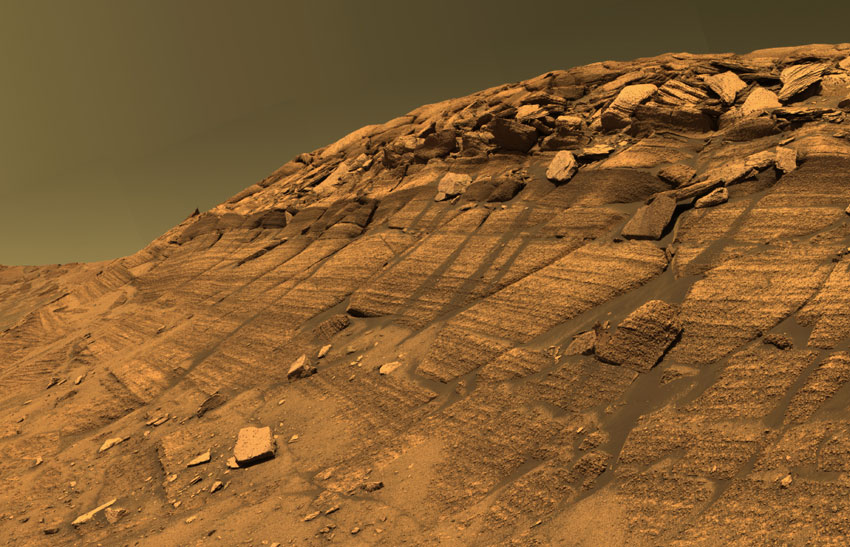
This month’s announcement from NASA that liquid water had been located on the surface of Mars stirred up a lot of excitement. While it’s definitely a great leap forward in our understanding of the planet, it doesn’t necessarily mean that we’ll be putting boots on the ground anytime soon.
Disco and Discovery
As long as we’ve had the space program, people have dreamed of traveling to Mars and creating a colony, perhaps even an entire planet. NASA first landed on Mars in the 1970’s with the Viking Orbiters and Landers, which were utilized to photograph the surface of Mars and relay information back about the surface conditions.
These first probes were a great leap forward in the realization of that dream, but the information they returned was less than hopeful. With an 95% Carbon Dioxide atmosphere and no visible signs of running water, Mars wasn’t exactly what you’d call inhabitable.
However, scientists determined that at one point, Mars did have water on the surface, including a large ocean. They were unable to determine what happened to all the water itself and think that multiple ice ages may factor in. Unfortunately, without being able to move on the planet, they weren’t able to gather more evidence.
Red Rover, Red Rover
NASA was determined to gather more information and launched numerous missions toward Mars. Some of the missions introduced robotic rovers capable of exploring the planet’s surface to look for clues of some form of life.
The rovers were able to provide exponentially more information about the planet’s surface and sent back findings that included high resolution pictures of the surface. While the surface wasn’t exactly human friendly with its barren deserts, we were able to determine that some ice still remains on the surface and it’s this ice that gave NASA the breakthrough they announced this month.
Don’t Be So Salty
The latest discovery, though, wasn’t found by the robotic rovers, but an orbiter launched in August of 2005. Scientists had been observing the planet using the Mars Reconnaissance Orbiter and noticed dark streaks appearing on the surface. They noticed that these streaks appeared to ebb and flow with the temperature on Mars and the eureka moment came when they realized that the streaks appeared to me made by running water. This gave them the evidence they needed to determine that water was indeed flowing in a liquid form, but they hadn’t determined how.
The answer, as it turns out, is due to your favorite table-side seasoning. Mars keeps an average surface temperature of -81° Fahrenheit so water on Mars is mostly in ice form. However, salt crystals have been shown to lower the freezing point of ice and this was the discovery that NASA made. Hydrated salt crystals appear to be moving in those dark streaks and ebb and flow with the fluctuating temperatures. While this is a great piece of discovery by scientists, we won’t be filling up our Martian water bottles anytime soon.
H2GO?
While flowing water is a necessary step to human habitation of Mars, there are numerous other factors that will need to be planned out before we’ll be able to land on the surface. One of the largest issues is the lack of an ozone layer on Mars. Without an ozone layer, there’s nothing to block UV radiation and we still haven’t been able to determine the amount of UV radiation that reaches the surface.
However, this is just another step in a series of many that NASA will need to take for humans to reach Mars. We’re excited to see what else they’re able to find and we can’t wait for more discoveries. At this point, NASA is estimating that a manned mission could take place sometime in the 2030’s, but advocates like Buzz Aldrin want the timeline pushed forward. We happen to agree with Buzz and echo his sentiment to NASA, “Get your ass to Mars.”